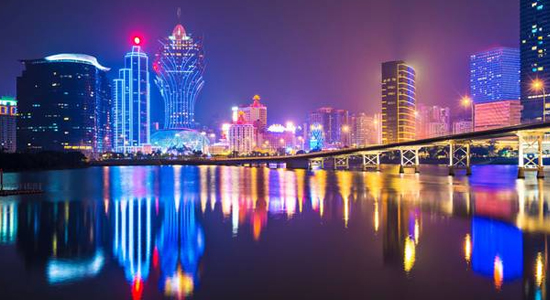The week in pictures: November 25th – December 1st, 2014

There was no shortage of news last week around the world so lets look back at some of the biggest stories that snatched the headlines.
Authorities in Ferguson Missouri were forced to call in the National Guard as widespread rioting overwhelmed the beleagued police force following the jury verdict finding Officer Darren Wilson inculpable after the August 9th shooting that saw him gun down the unarmed black teenager Michael Brown. With buildings set ablaze and numerous arrests the riots mark a low point in the relationship between the almost entirely white police force and vastly black population they serve. Officer Darren Wilson then resigned from his position, a move that has done little to quell tension in the town.
The teenage daughters of President Obama came under fire from Republican Elizabeth Lauten who posted on Facebook following their appearance at the turkey pardoning ceremony alongside their father at the White House. “Dress like you deserve respect, not a spot at a bar.” She said of the 13 and 16 year old girls outfits, adding that she felt they lacked class but lamented, “your mother and father don’t respect their positions very much, or the nation for that matter. So I’m guessing you’re coming up a little short in the ‘good role model’ department.”. She then deleted the statement and apologized insincerely, much to the annoyance of the internet.
The Black Friday chaos proved to be a little less fraught this year as many stores tried to ease the rush by beginning their sales on Thanksgiving itself. As millions of Americans sat down to eat with their families and then went out to grab some early Christmas shopping bargains with very few instances of trouble, across the Atlantic in the UK (which doesn’t even celebrate thanksgiving) there were scenes of unbridled consumerist madness with the police being called to deal with trouble at several stores that began their sales at midnight and saw pandemonium break out upon opening their doors to the great British public.
In sport the Cricketing world paid its respects after the sad death of 25 year old Australian Phillip Hughes who died last week having been hit by the ball. The tragic accident has placed the first test between India and Australia, due to start on Thursday in Brisbane, in doubt and an already busy schedule may mean it won’t go ahead at all. Negotiations between the teams on the matter continued into the weekend and to find out if or when it goes ahead you’ll have to check our daily news pages regularly but in the meantime here’s some of the stories that hit our headlines last week.
1. Despite his conflict with Borgata, poker pro Phil Ivey has endorsed the casino’s new partner, the Pala Casino online gambling site.

2.The Florida Lottery has a bright future ahead. Lottery sales in the Sunshine State already reached an impressive $5.3 billion and now lawmakers are considering introducing online sales in the state.
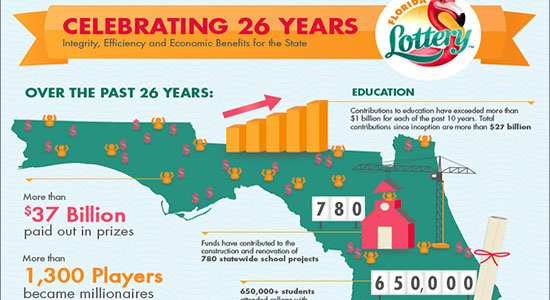
3.Neteller co-founder’s biography was released. Readers could discover the story behind the successful and controversial John Lefebvre.

4.The recent casino cheating case involving US Navy Rear Admiral Timothy Giardani got everybody’s attention.

5.What seems to be holding back the growth in the Macau casino industry?
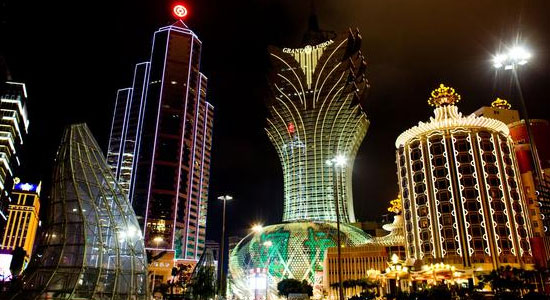
6.Favourit and EveryMatrix launched multi-lingual online and mobile platform to the delight of players.

7.The Polish government is considering reviewing their policies on international gambling operations.
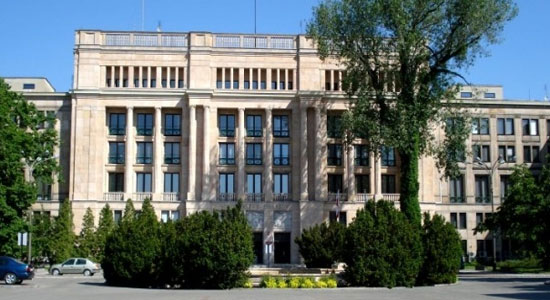
Meanwhile the queen of the crime novel, PD James, died peacefully at the age of 94 in her Oxford home having written 20 books including “Children of Men” and the massively successful series featuring the detective Adam Dalgliesh that were adapted for television, and in Hong Kong protestors attempted to move on the Chief Executive’s office only to be met by batons, pepper-spray and water hoses from authorities tired of the softly-softly approach. Will there be more chaos on the streets of this gambling capital? You’ll have to check in with our daily news pages to find out.



There was no shortage of news last week around the world so lets look back at some of the biggest stories that snatched the headlines.
Authorities in Ferguson Missouri were forced to call in the National Guard as widespread rioting overwhelmed the beleagued police force following the jury verdict finding Officer Darren Wilson inculpable after the August 9th shooting that saw him gun down the unarmed black teenager Michael Brown. With buildings set ablaze and numerous arrests the riots mark a low point in the relationship between the almost entirely white police force and vastly black population they serve. Officer Darren Wilson then resigned from his position, a move that has done little to quell tension in the town.
The teenage daughters of President Obama came under fire from Republican Elizabeth Lauten who posted on Facebook following their appearance at the turkey pardoning ceremony alongside their father at the White House. “Dress like you deserve respect, not a spot at a bar.” She said of the 13 and 16 year old girls outfits, adding that she felt they lacked class but lamented, “your mother and father don’t respect their positions very much, or the nation for that matter. So I’m guessing you’re coming up a little short in the ‘good role model’ department.”. She then deleted the statement and apologized insincerely, much to the annoyance of the internet.
The Black Friday chaos proved to be a little less fraught this year as many stores tried to ease the rush by beginning their sales on Thanksgiving itself. As millions of Americans sat down to eat with their families and then went out to grab some early Christmas shopping bargains with very few instances of trouble, across the Atlantic in the UK (which doesn’t even celebrate thanksgiving) there were scenes of unbridled consumerist madness with the police being called to deal with trouble at several stores that began their sales at midnight and saw pandemonium break out upon opening their doors to the great British public.
In sport the Cricketing world paid its respects after the sad death of 25 year old Australian Phillip Hughes who died last week having been hit by the ball. The tragic accident has placed the first test between India and Australia, due to start on Thursday in Brisbane, in doubt and an already busy schedule may mean it won’t go ahead at all. Negotiations between the teams on the matter continued into the weekend and to find out if or when it goes ahead you’ll have to check our daily news pages regularly but in the meantime here’s some of the stories that hit our headlines last week.
1. Despite his conflict with Borgata, poker pro Phil Ivey has endorsed the casino’s new partner, the Pala Casino online gambling site.

2.The Florida Lottery has a bright future ahead. Lottery sales in the Sunshine State already reached an impressive $5.3 billion and now lawmakers are considering introducing online sales in the state.

3.Neteller co-founder’s biography was released. Readers could discover the story behind the successful and controversial John Lefebvre.

4.The recent casino cheating case involving US Navy Rear Admiral Timothy Giardani got everybody’s attention.

5.What seems to be holding back the growth in the Macau casino industry?

6.Favourit and EveryMatrix launched multi-lingual online and mobile platform to the delight of players.

7.The Polish government is considering reviewing their policies on international gambling operations.

Meanwhile the queen of the crime novel, PD James, died peacefully at the age of 94 in her Oxford home having written 20 books including “Children of Men” and the massively successful series featuring the detective Adam Dalgliesh that were adapted for television, and in Hong Kong protestors attempted to move on the Chief Executive’s office only to be met by batons, pepper-spray and water hoses from authorities tired of the softly-softly approach. Will there be more chaos on the streets of this gambling capital? You’ll have to check in with our daily news pages to find out.


Macau Reports Most Painful Revenue Drop Since 2005
Macau has had a few rough months during and after the World Cup in Brazil, but its streak of bad luck reached its peak in October.
When June reports showed a 3.7% year-on-year drop, industry experts blamed it on the World Cup sports betting craze and said things would pick up. Then revenues came in at just $3.6 billion in July, showing a 3.6% drop from the same period last year and they said Macau needs a bit more time to get back on track.
But as Chinese authorities continue their crackdown on casino corruption, an initiative which scared away a number of VIP customers, things have gotten serious. In October, total casino revenue fell by 23.2% in October compared to the same month of 2013.
The city’s gaming authority said total revenue was at 28 billion Macau patacas ($3.5 billion) this October, marking Macau’s worst financial performance since the gambling hub started recording such data in 2005.
Despite its recent downward trend, Macau continues to be the world’s largest gambling centre, way ahead of Las Vegas. The bad news is that the region relies heavily on casino revenue –mostly on the money spent by high-rollers – which seems to be on the decline. Moreover, it’s the only area where China allows casinos, a type of entertainment otherwise forbidden under the country’s gambling laws.
Reuters: Macau Oct gaming revenues fall 23 pct, drop worst on record
October was the worst month for Macau’s casinos and the fifth consecutive month of declines. Industry representatives blame it on China’s passive war on corruption, as well as on a decline in the number of tourists and a general slowing of economic growth, which makes people spend less on gambling.
“It is worse in October than it was before October,” Steve Wynn, chief executive of Wynn Macau, told a recent earnings call. “I don’t know if it is a squall or if we are in the rainy season, or how long it will last, but we are still very bullish on Macau.”
The American casino developer has started construction on another Macau project – a $4 billion integrated resort, which includes a lake and air-conditioned gondolas.
According to online gambling news, about 80% of Macau’s revenues rely on gambling, but China’s two-year anti-corruption battle has taken its toll on the local casino industry. Big spenders are now avoiding the area and choosing other destinations where they can freely spend their money. Profits from VIP customers accounted for just 56% of total revenues in the third quarter, which was a new low for Macau.
Las Vegas Sands chief Sheldon Adelson said these trends are cyclical. “It is only a matter of time before the cycle reverses itself. No one has ever suggested that the behavior of Chinese and Asian people, which has been established over a 3,000-year history, is going to change.”
Wall Street Journal: Macau Gambling-Revenue Drop Divides Investors
Making smart investments in casino stocks used to be pretty simple. Investors would just choose those companies that had bigger exposure in Macau, knowing that those were the names with the best prospects. Things have changed now that Macau has had its fifth straight month of revenue declines.
Hong Kong-based Central Asset Investments portfolio manager Armand Yeung said: “We were short. Now we’re just staying away from it.” Though valuations have become more reasonable and dividend yields are attractive, “there’s still a lot of debate”, he added.
When an analyst casino magnate Steve Wynn if he thought things were getting worse in Macau, he replied: “Oh, well, that’s an easy question. It’s worse in October than it was before October. So if you’re asking what is the nadir of our experience, it is current.”
Wynn added that Beijing’s efforts to combat corruption in Macau “has put a lot of the wealthy businessmen in the fox holes.”
Credit analysts are expressing concerns about Macau expansion plans, claiming that casinos will not be able to repay their debts if the slowdown in revenue continues.
Forbes: Macau Casino Revenue Falls, VIPs Blamed, Investors Rejoice
Figures released by the Gaming Inspection and Coordination Bureau showed a 3.7% decline in year-on-year revenue in June, with profits dropping to 27.2 billion Macau patacas or $3.4 billion. Industry representatives claim it was caused by a 20% drop in VIP attendance.
This was the first time when Macau’s monthly revenue fell since June 2009, which marked a low point for the city’s casino sector. Union Gaming Research Macau analysts Grant Govertsen and Felicity Chiang pointed out that from the decline in 2009, “Macau went on an unprecedented run [with] tripling of GGR from approximately US$15 billion in 2009 to US$45 billion in 2013.”
Between 2008 and 2009, Macau’s problem was mainly a matter of politics, with an overlay of economic factors. It could be the same this time around, as the 20% drop in VIP revenue is believed to be caused by President Xi Jinping’s anti-corruption campaign in China.
On the other hand, a report released by Morgan Stanley Asia in June cited economic factors from the mainland, while others blamed it on the World Cup, which Union Gaming conceded “could be responsible for a few hundred basis points of the VIP decline.”
Macau has had a few rough months during and after the World Cup in Brazil, but its streak of bad luck reached its peak in October.
When June reports showed a 3.7% year-on-year drop, industry experts blamed it on the World Cup sports betting craze and said things would pick up. Then revenues came in at just $3.6 billion in July, showing a 3.6% drop from the same period last year and they said Macau needs a bit more time to get back on track.
But as Chinese authorities continue their crackdown on casino corruption, an initiative which scared away a number of VIP customers, things have gotten serious. In October, total casino revenue fell by 23.2% in October compared to the same month of 2013.
The city’s gaming authority said total revenue was at 28 billion Macau patacas ($3.5 billion) this October, marking Macau’s worst financial performance since the gambling hub started recording such data in 2005.
Despite its recent downward trend, Macau continues to be the world’s largest gambling centre, way ahead of Las Vegas. The bad news is that the region relies heavily on casino revenue –mostly on the money spent by high-rollers – which seems to be on the decline. Moreover, it’s the only area where China allows casinos, a type of entertainment otherwise forbidden under the country’s gambling laws.
Reuters: Macau Oct gaming revenues fall 23 pct, drop worst on record
October was the worst month for Macau’s casinos and the fifth consecutive month of declines. Industry representatives blame it on China’s passive war on corruption, as well as on a decline in the number of tourists and a general slowing of economic growth, which makes people spend less on gambling.
“It is worse in October than it was before October,” Steve Wynn, chief executive of Wynn Macau, told a recent earnings call. “I don’t know if it is a squall or if we are in the rainy season, or how long it will last, but we are still very bullish on Macau.”
The American casino developer has started construction on another Macau project – a $4 billion integrated resort, which includes a lake and air-conditioned gondolas.
According to online gambling news, about 80% of Macau’s revenues rely on gambling, but China’s two-year anti-corruption battle has taken its toll on the local casino industry. Big spenders are now avoiding the area and choosing other destinations where they can freely spend their money. Profits from VIP customers accounted for just 56% of total revenues in the third quarter, which was a new low for Macau.
Las Vegas Sands chief Sheldon Adelson said these trends are cyclical. “It is only a matter of time before the cycle reverses itself. No one has ever suggested that the behavior of Chinese and Asian people, which has been established over a 3,000-year history, is going to change.”
Wall Street Journal: Macau Gambling-Revenue Drop Divides Investors
Making smart investments in casino stocks used to be pretty simple. Investors would just choose those companies that had bigger exposure in Macau, knowing that those were the names with the best prospects. Things have changed now that Macau has had its fifth straight month of revenue declines.
Hong Kong-based Central Asset Investments portfolio manager Armand Yeung said: “We were short. Now we’re just staying away from it.” Though valuations have become more reasonable and dividend yields are attractive, “there’s still a lot of debate”, he added.
When an analyst casino magnate Steve Wynn if he thought things were getting worse in Macau, he replied: “Oh, well, that’s an easy question. It’s worse in October than it was before October. So if you’re asking what is the nadir of our experience, it is current.”
Wynn added that Beijing’s efforts to combat corruption in Macau “has put a lot of the wealthy businessmen in the fox holes.”
Credit analysts are expressing concerns about Macau expansion plans, claiming that casinos will not be able to repay their debts if the slowdown in revenue continues.
Forbes: Macau Casino Revenue Falls, VIPs Blamed, Investors Rejoice
Figures released by the Gaming Inspection and Coordination Bureau showed a 3.7% decline in year-on-year revenue in June, with profits dropping to 27.2 billion Macau patacas or $3.4 billion. Industry representatives claim it was caused by a 20% drop in VIP attendance.
This was the first time when Macau’s monthly revenue fell since June 2009, which marked a low point for the city’s casino sector. Union Gaming Research Macau analysts Grant Govertsen and Felicity Chiang pointed out that from the decline in 2009, “Macau went on an unprecedented run [with] tripling of GGR from approximately US$15 billion in 2009 to US$45 billion in 2013.”
Between 2008 and 2009, Macau’s problem was mainly a matter of politics, with an overlay of economic factors. It could be the same this time around, as the 20% drop in VIP revenue is believed to be caused by President Xi Jinping’s anti-corruption campaign in China.
On the other hand, a report released by Morgan Stanley Asia in June cited economic factors from the mainland, while others blamed it on the World Cup, which Union Gaming conceded “could be responsible for a few hundred basis points of the VIP decline.”
Police Busts Illegal Betting Operation Taking Wagers on World Cup Sports Scores
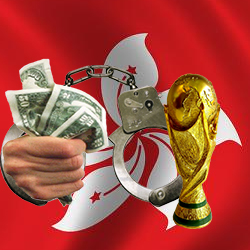
Despite the fact that both FIFA and gambling authorities across the world warned that they would intensify efforts to combat betting corruption, illegal wagers on World Cup sports scores proved to be too tempting for leaders of underground gambling rings.
The football event of the year has barely started, but the police in Macau already arrested a few punters from Hong Kong after evidence suggested they had placed HK $5 billion in illegal bets, including one staggering wager worth HK $40 million on a single match.
The illegal gambling operation was run from a hotel in Macau, which was raided by the local police. Officers found and removed betting slips and accounts, as well as more than HK $2 million in cash, 17 computers and 10 mobile phones.
Since the beginning of the 2014 World Cup in Brazil, Hong Kong police officers have also arrested 39 people suspected of unlawful gambling. HK $85 million worth of betting slips were confiscated from the illegal bookmakers.
South China Morning Post: Macau police smash illegal betting ring that took HK$5b in World Cup wagers
The Macau police busted a huge bookmaking operation. It is said that the illegal betting ring took a total of HK $5 billion in World Cup wagers, from rich clients around the world. Punters placed their bets on live sports results via telephone or online.
A raid on a local hotel found that three rooms had been turned into an operation base for the illegal betting syndicate. According to the latest gambling news, 22 people (including two women) aged 23 to 50 were arrested. Among them were four men from Hong Kong, nine Malaysians and nine mainlanders. The ring was lead by two men, one from Malaysia and one from the mainland.
One day later, the police conducted a second raid and arrested four new suspects at the same hotel. Officers are now conducting further investigations to find out who was placing the bets.
Suen Kam-fai, a spokesman for the local police, told reporters: “Information indicates that this syndicate accepted bets before and after the matches kicked off. That’s why they needed a lot of manpower to take bets via the internet and telephone.”
CNN: Macau busts $645 million World Cup betting ring
Police have smashed a gambling ring operating from a hotel located in Macau. The illegal betting syndicate allegedly took the equivalent of US $645 million in World Cup wagers. According to local authorities, this was the biggest ever raid on an unlawful bookmaking racket in the Asian casino capital.
Working from three hotel rooms, the suspects took internet and phone bets from around the world. Authorities discovered that one gambler placed a wager valued at around US $5 million.
The police arrested 22 people from mainland China, Hong Kong and Malaysia, including two suspects believed to be the ringleaders. They also confiscated US $248,000 in cash, 17 computers, at least 10 cell phones and several betting slips.
A few hours later, the police busted a second gambling operating from the same hotel. Four Chinese men allegedly took US$645,000 in illegal bets on World Cup matches in one day.
The raids were part of a cross-border campaign to combat illegal sports betting in Macau, Hong Kong and the southern province of Guangdong, China.
The Guardian: Police bust gambling racket in Macau after huge World Cup bets
A bookmaking racket that allegedly took HK $5 billion ($645 million, or GBP 379 million) in illegal bets was recently uncovered by the police in Macau. The illicit football syndicate operated from a local hotel and allowed punters from all over the world to place World Cup wagers online and via telephone, the South China Morning Post said.
Police have arrested 22 suspects in what is thought to be the biggest unlawful football betting operation in Macau, as initial investigations found evidence of HK $5 billion worth of World Cup wagers, including a single HK$40 million bet on one match.
Since the beginning of the 2014 World Cup, authorities in Macau, Hong Kong and the Guangdong province have been working together in a campaign to put an end to illegal gambling operations. Investigators seized more than HK $2 million in cash, 17 computers, more than 10 mobile phones and betting slips.
During the first week of the World Cup, authorities in the area have arrested 39 people suspected of being involved in illegal betting operations and confiscated HK $85 million worth of betting slips.

Despite the fact that both FIFA and gambling authorities across the world warned that they would intensify efforts to combat betting corruption, illegal wagers on World Cup sports scores proved to be too tempting for leaders of underground gambling rings.
The football event of the year has barely started, but the police in Macau already arrested a few punters from Hong Kong after evidence suggested they had placed HK $5 billion in illegal bets, including one staggering wager worth HK $40 million on a single match.
The illegal gambling operation was run from a hotel in Macau, which was raided by the local police. Officers found and removed betting slips and accounts, as well as more than HK $2 million in cash, 17 computers and 10 mobile phones.
Since the beginning of the 2014 World Cup in Brazil, Hong Kong police officers have also arrested 39 people suspected of unlawful gambling. HK $85 million worth of betting slips were confiscated from the illegal bookmakers.
South China Morning Post: Macau police smash illegal betting ring that took HK$5b in World Cup wagers
The Macau police busted a huge bookmaking operation. It is said that the illegal betting ring took a total of HK $5 billion in World Cup wagers, from rich clients around the world. Punters placed their bets on live sports results via telephone or online.
A raid on a local hotel found that three rooms had been turned into an operation base for the illegal betting syndicate. According to the latest gambling news, 22 people (including two women) aged 23 to 50 were arrested. Among them were four men from Hong Kong, nine Malaysians and nine mainlanders. The ring was lead by two men, one from Malaysia and one from the mainland.
One day later, the police conducted a second raid and arrested four new suspects at the same hotel. Officers are now conducting further investigations to find out who was placing the bets.
Suen Kam-fai, a spokesman for the local police, told reporters: “Information indicates that this syndicate accepted bets before and after the matches kicked off. That’s why they needed a lot of manpower to take bets via the internet and telephone.”
CNN: Macau busts $645 million World Cup betting ring
Police have smashed a gambling ring operating from a hotel located in Macau. The illegal betting syndicate allegedly took the equivalent of US $645 million in World Cup wagers. According to local authorities, this was the biggest ever raid on an unlawful bookmaking racket in the Asian casino capital.
Working from three hotel rooms, the suspects took internet and phone bets from around the world. Authorities discovered that one gambler placed a wager valued at around US $5 million.
The police arrested 22 people from mainland China, Hong Kong and Malaysia, including two suspects believed to be the ringleaders. They also confiscated US $248,000 in cash, 17 computers, at least 10 cell phones and several betting slips.
A few hours later, the police busted a second gambling operating from the same hotel. Four Chinese men allegedly took US$645,000 in illegal bets on World Cup matches in one day.
The raids were part of a cross-border campaign to combat illegal sports betting in Macau, Hong Kong and the southern province of Guangdong, China.
The Guardian: Police bust gambling racket in Macau after huge World Cup bets
A bookmaking racket that allegedly took HK $5 billion ($645 million, or GBP 379 million) in illegal bets was recently uncovered by the police in Macau. The illicit football syndicate operated from a local hotel and allowed punters from all over the world to place World Cup wagers online and via telephone, the South China Morning Post said.
Police have arrested 22 suspects in what is thought to be the biggest unlawful football betting operation in Macau, as initial investigations found evidence of HK $5 billion worth of World Cup wagers, including a single HK$40 million bet on one match.
Since the beginning of the 2014 World Cup, authorities in Macau, Hong Kong and the Guangdong province have been working together in a campaign to put an end to illegal gambling operations. Investigators seized more than HK $2 million in cash, 17 computers, more than 10 mobile phones and betting slips.
During the first week of the World Cup, authorities in the area have arrested 39 people suspected of being involved in illegal betting operations and confiscated HK $85 million worth of betting slips.
Japan: A Future Promised Land for Casinos
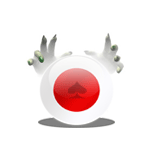
The gambling industry is one that continues to blossom exponentially. Originally, Las Vegas was considered to be the gambling capital of the world. Macau passed it in popularity after just a few short years and Japan is starting to look like a promising venture for some of the world’s larger gambling operations.
The Street: Las Vegas Sands Bets on Japan
Las Vegas Sands plans on expanding its Macau-based Sands China into Japan, which it predicts could become Asia’s largest gaming market. Sands has already been approach by local gaming firms in Japan.
Gaming is still week in the U.S. and Macau has been the focus of casino operators. In the first quarter Sands Macau, which has three casinos in the Chinese gambling enclave, saw its profit quadruple to $110.5 million from $26.7 million just one year ago.
Revenue at Sands China shot up 24% to $944 million from $761.7 million in the year-ago period. Overall, Macau posted a record 70% surge in gaming revenue in April to $1.76 billion. And it appears the gambling hub could be on track for another record month.
Casino operators aren’t just limiting their Asian expansion to Macau. Last month, Sands opened the first part of its $5.5 billion hotel-casino in Singapore. The company expects the Singapore casino could earn $1 billion annually. MGM has also said that it is looking into other gaming markets, including Vietnam.
Reuters: Sands China bets on Japan; sees strong Q2
Macau-based Sands China, the world’s second-most valuable casino operator, has its sights on expanding into Japan, which it predicts could become Asia’s largest gambling market.
Expanding in Asia beyond Macau has become important for casino operators such as Sands and Wynn Resorts, which worry about Beijing’s erratic travel restrictions on mainland Chinese visiting Macau, the only place in the country where casino gambling is legal.
Japan has long debated legalizing casino gambling and could make a decision soon as it looks to the example of Singapore, which recently opened two major casino resorts. Sands China’s parent Las Vegas Sands opened its $5.5 billion Singapore casino resort, the world’ second-most expensive, late last month.
Japan has made slow progress on allowing casinos, partly due to fears they could trigger social problems.
If Japan moves to legalise casino gambling, the first casino could open by around 2014-15, said Jacobs, who was chief executive of an international management services firm before he joined Las Vegas Sands in March last year.
Channel News Asia: Marina Bay Sands targeting Southeast Asian market
The $5.5 billion Marina Bay Sands integrated resort is betting its chips on the Southeast Asian market. The region is expected to account for over a third of its business in Singapore, according to Sheldon Adelson, the
chairman of its parent company Las Vegas Sands.
He said the company is also considering building integrated resorts in Europe and Japan.
The Marina Bay Sands resort, which was partially opened on Tuesday, April 27, is expected to break even in just 5 years.
Marina Bay Sands will be targeting primary markets like Malaysia, Indonesia, Thailand, Vietnam and Singapore. Combined, these countries will make up some 40 per cent of Marina Bay Sands’ business (10 per cent each from Malaysia, Indonesia and Thailand; and 8 per cent from Vietnam). China will account for about 6 per cent of its business.
Adelson added: “Asia could use 5 or 10 Las Vegases fully built out with 140,000 rooms each. That would give you from 700,000 to 1.4 million rooms for destination resorts for people all over Asia to go to. And in my opinion, you will never saturate the market.

The gambling industry is one that continues to blossom exponentially. Originally, Las Vegas was considered to be the gambling capital of the world. Macau passed it in popularity after just a few short years and Japan is starting to look like a promising venture for some of the world’s larger gambling operations.
The Street: Las Vegas Sands Bets on Japan
Las Vegas Sands plans on expanding its Macau-based Sands China into Japan, which it predicts could become Asia’s largest gaming market. Sands has already been approach by local gaming firms in Japan.
Gaming is still week in the U.S. and Macau has been the focus of casino operators. In the first quarter Sands Macau, which has three casinos in the Chinese gambling enclave, saw its profit quadruple to $110.5 million from $26.7 million just one year ago.
Revenue at Sands China shot up 24% to $944 million from $761.7 million in the year-ago period. Overall, Macau posted a record 70% surge in gaming revenue in April to $1.76 billion. And it appears the gambling hub could be on track for another record month.
Casino operators aren’t just limiting their Asian expansion to Macau. Last month, Sands opened the first part of its $5.5 billion hotel-casino in Singapore. The company expects the Singapore casino could earn $1 billion annually. MGM has also said that it is looking into other gaming markets, including Vietnam.
Reuters: Sands China bets on Japan; sees strong Q2
Macau-based Sands China, the world’s second-most valuable casino operator, has its sights on expanding into Japan, which it predicts could become Asia’s largest gambling market.
Expanding in Asia beyond Macau has become important for casino operators such as Sands and Wynn Resorts, which worry about Beijing’s erratic travel restrictions on mainland Chinese visiting Macau, the only place in the country where casino gambling is legal.
Japan has long debated legalizing casino gambling and could make a decision soon as it looks to the example of Singapore, which recently opened two major casino resorts. Sands China’s parent Las Vegas Sands opened its $5.5 billion Singapore casino resort, the world’ second-most expensive, late last month.
Japan has made slow progress on allowing casinos, partly due to fears they could trigger social problems.
If Japan moves to legalise casino gambling, the first casino could open by around 2014-15, said Jacobs, who was chief executive of an international management services firm before he joined Las Vegas Sands in March last year.
Channel News Asia: Marina Bay Sands targeting Southeast Asian market
The $5.5 billion Marina Bay Sands integrated resort is betting its chips on the Southeast Asian market. The region is expected to account for over a third of its business in Singapore, according to Sheldon Adelson, the
chairman of its parent company Las Vegas Sands.
He said the company is also considering building integrated resorts in Europe and Japan.
The Marina Bay Sands resort, which was partially opened on Tuesday, April 27, is expected to break even in just 5 years.
Marina Bay Sands will be targeting primary markets like Malaysia, Indonesia, Thailand, Vietnam and Singapore. Combined, these countries will make up some 40 per cent of Marina Bay Sands’ business (10 per cent each from Malaysia, Indonesia and Thailand; and 8 per cent from Vietnam). China will account for about 6 per cent of its business.
Adelson added: “Asia could use 5 or 10 Las Vegases fully built out with 140,000 rooms each. That would give you from 700,000 to 1.4 million rooms for destination resorts for people all over Asia to go to. And in my opinion, you will never saturate the market.















